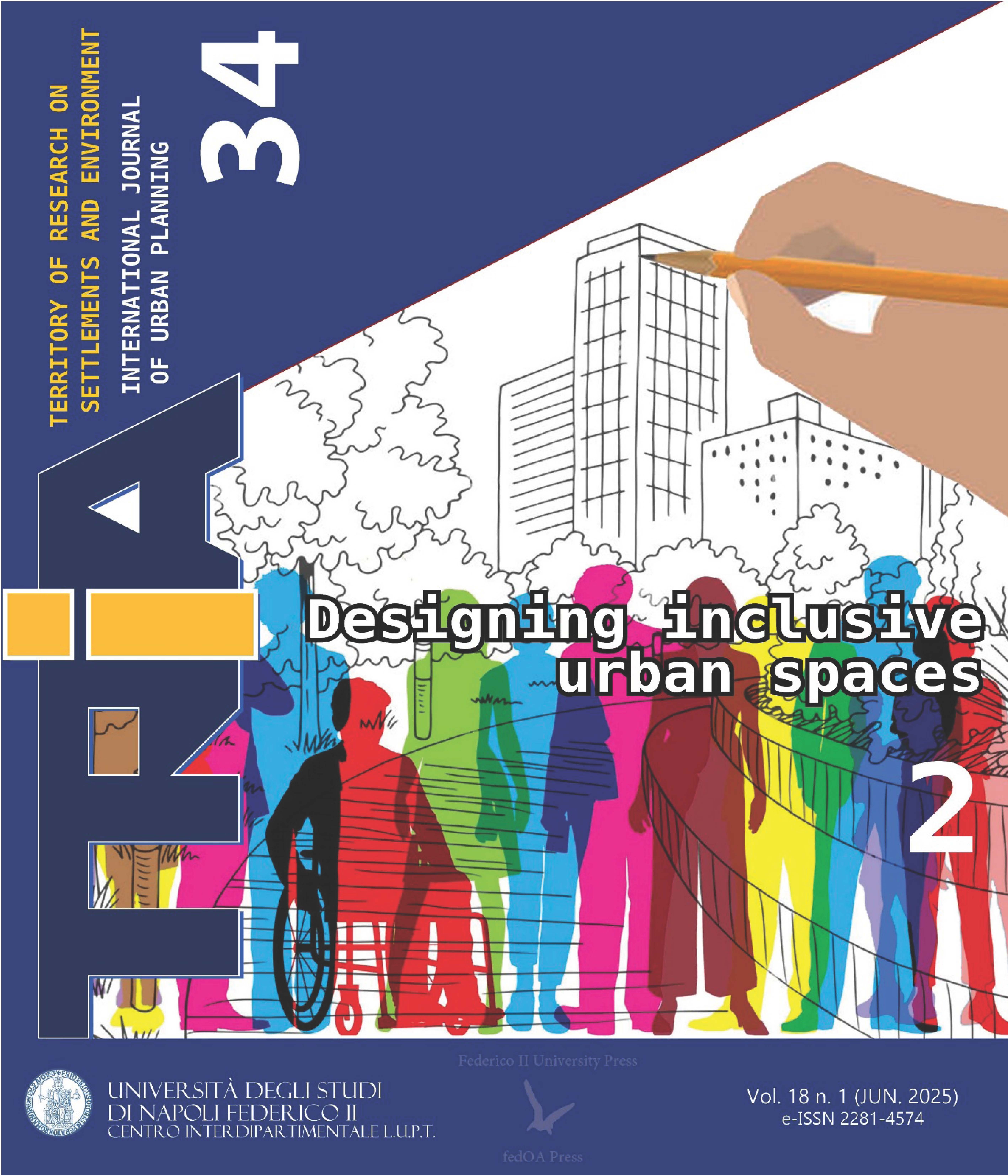Current Issue

The urban space of our cities is often degraded, fragmented and segregating and therefore needs to be carefully designed to address emerging issues with a multidimensional and multi-scalar approach. The themes that characterise the design may concern urban regeneration and public space, cultural heritage, resilience and adaptation to climate change, new economic and circular approaches, the use of digital technologies and applications of AI in urban practices, as well as the creation of grey and green infrastructures capable of restoring artificial environments that integrate with nature.
Articoli
TRIA (ISSN 2281-4574) is an international journal (founded in 2008), indexed in Web of Science and qualified in “classe A” according to ANVUR. It focuses on the issues of urban planning and design sited in the context of natural and social sciences concerning the settlement process. Scheduled every six months, it exclusively welcomes in the scientific committee emerging personalities from Italian and international universities and research centers (Brescia, Chieti-Pescara, CNR IRISS, CNRS ESPACE, Ferrara, Matera, Naples, Palermo, Parma, Potenza, Reggio Calabria, Roma, Salerno , Turin, Trento, Trieste, Udine, Argentina, France, Germany, Mexico, Portugal, United Kingdom, Romania, Russia, Spain, USA). The journal applies the double blind peer review, in which referees and authors remain anonymous throughout the process.
